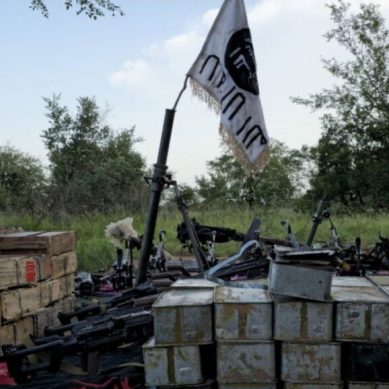
Stakeholders in tea sector want Kenya and Sudan to resolve the month-old trade and diplomatic standoff that has locked out East African nation’s fresh produce from the north-eastern Africa nation’s markets.
Sudan accuses Kenya of interference in its internal affairs after Nairobi played host to Rapid Support Force, a paramilitary outfit that has been fighting the Sudanese national army from April 22, 2023.
RSF led by Muhamed Hamdan Dagalo ‘Hemedti’, announced formation of an alternative government in Nairobi, touching off a diplomatic row that has sucked in the African Union, European Union and the United Nations.
The Sudanese market depends on Kenyan agricultural produce such as tea, coffee, vegetables, fruits and some industrial goods. In good times, Sudan imported about $37 million of Kenyan tea although that figure dropped in wartime to $18 million in 2024. The move could lead to price increases for certain goods in Sudan, even as Kenyan direct exports to Sudan may be affected.
On March 11, 2025, Sudan’s Ministry of Trade and Supply, indefinitely suspended the importation of products from Kenya in all ports of entry to the war-torn country.
East Africa Tea Trade Association (EATTA) Managing Director, George Omuga, says that some teas were already in the high seas destined for Sudan before Khartoum-based faction suspended trade ties with Nairobi. Omuga said the huge stocks that had already been bought the Sudanese traders are in warehouses because they cannot be shipped.
“We have buyers who have running contracts and have teas lying at Port Sudan. Several containers of tea already dispatched destined for Sudan are in the high seas and huge stocks bought for the Sudan market are still in warehouses in Mombasa,” Omuga said during a meeting with stakeholders at EATTA offices in Mombasa.
Sudan says the decision was made to safeguard Sudan’s “supreme interests and strengthen national security” citing Kenya’s alleged hosting of militia leaders and their allies, as well as its support for their meetings and activities – an apparent reference to armed groups opposing the Sudanese government.
RSF told journalists in the Kenyan capital, Nairobi, after announcing formation of government that it would seek diplomatic legitimacy from its army-led rival and ease access to advanced weaponry. The move could prolong a devastating war in which the paramilitary RSF has recently been losing ground, and effectively splinter Africa’s third largest country by area.
In late February, according to Reuters, since the conflict between the army and the RSF erupted in April 2023, the army-led government had retained wide international recognition despite being forced by the fighting to move to Port Sudan on the Red Sea.
But in a bid to challenge that status, the report said, RSF signed a political charter in Kenya with political parties and armed groups. The signatories said a “Government of Peace and Unity” would be formed within weeks from inside Sudan.
In Mombasa, Kenya, Omuga said some of the teas have been packaged and branded for the Sudanese market would go to waste unless diplomatic and trade relations were restored.
The ban is expected to have negative economic impacts on the tea trade in the country as more than 80 per cent of tea from East Africa is exported through the Port of Mombasa.
“This will result in unfathomable losses incurred by buyers and will trickle down to producers and farmers,” he said.
“Kenyan tea exporters for the Sudan market will have severe cash flow challenges and the tea already bought and shipped to Sudan will not be paid for by the Sudanese buyers because these teas will not be cleared at the Port of Sudan,” he said.
Sudan, the EATTA Omuga noted, purchases specific grades of tea that cannot be diverted to other markets. He further disclosed that more than 2007 containers of teas are lying at the Mombasa Port destined for the Sudan market.
“This will create a significant negative impact in terms of the auction tea prices and the auction tea purchases. Kenya Tea Producers will lose the Sudan market, which is among the top five destinations for Kenya teas. This will compound the already existing market glut at the Mombasa auction.”
Reuters reported that foreign governments view RSF’s planned government as an effort to control the flow of humanitarian aid, access arms markets, and gain leverage at any future peace negotiations, said Jonas Horner, a visiting fellow at the European Council on Foreign Relations.
The RSF has received a stream of military support, including drones and air defences, as both sides have obtained more advanced weaponry from abroad. The army has accused the United Arab Emirates of sending arms to the RSF, a charge UN experts and UN lawmakers have found credible but the Gulf state denies.
- A Tell Media / KNA report / By Sadik Hassan
art of the tea ready for the market in storage at one of Kenya Tea Development Agency (KTDA) depots in Miritini, Mombasa. Credit: Andrew Hinga







